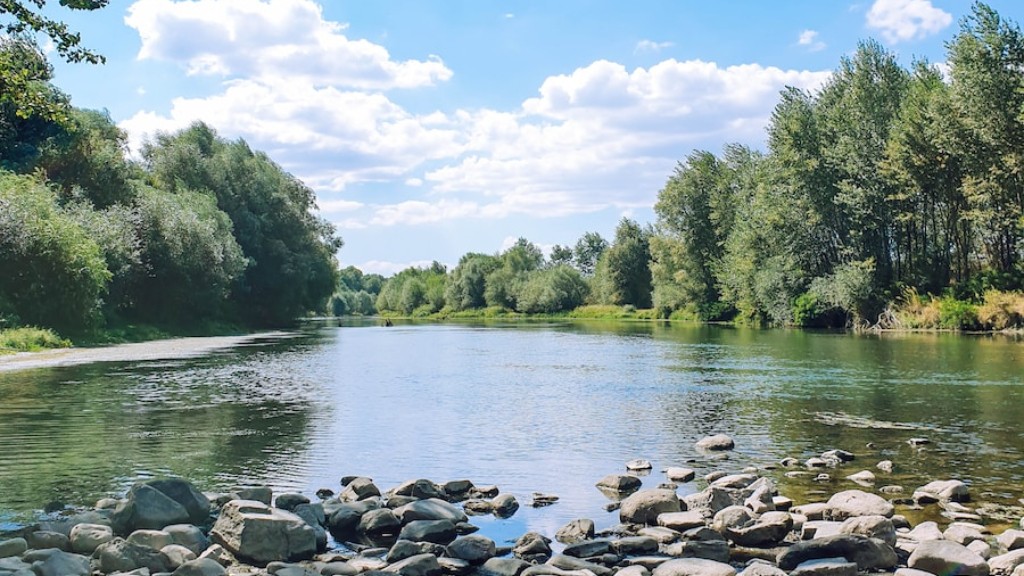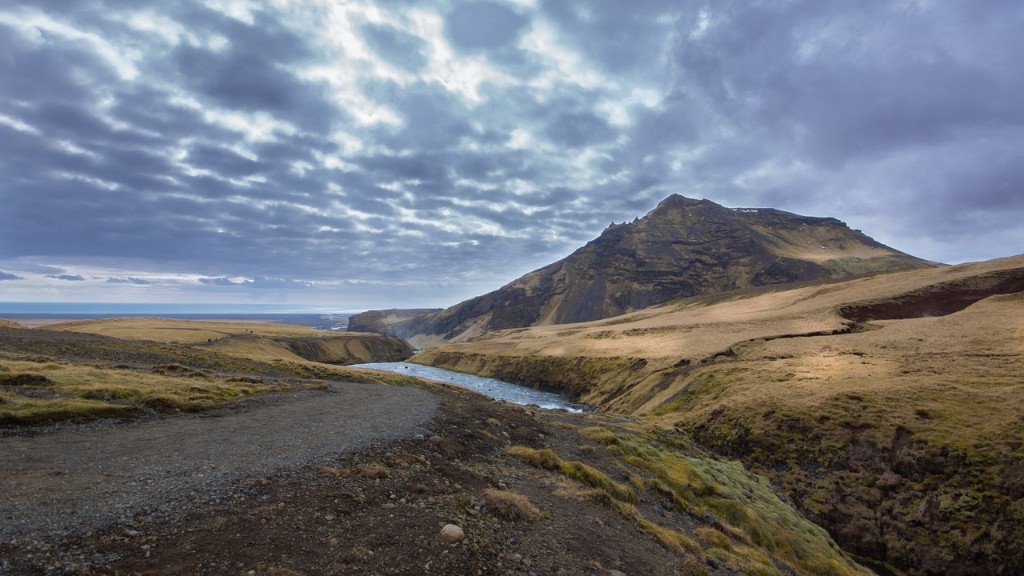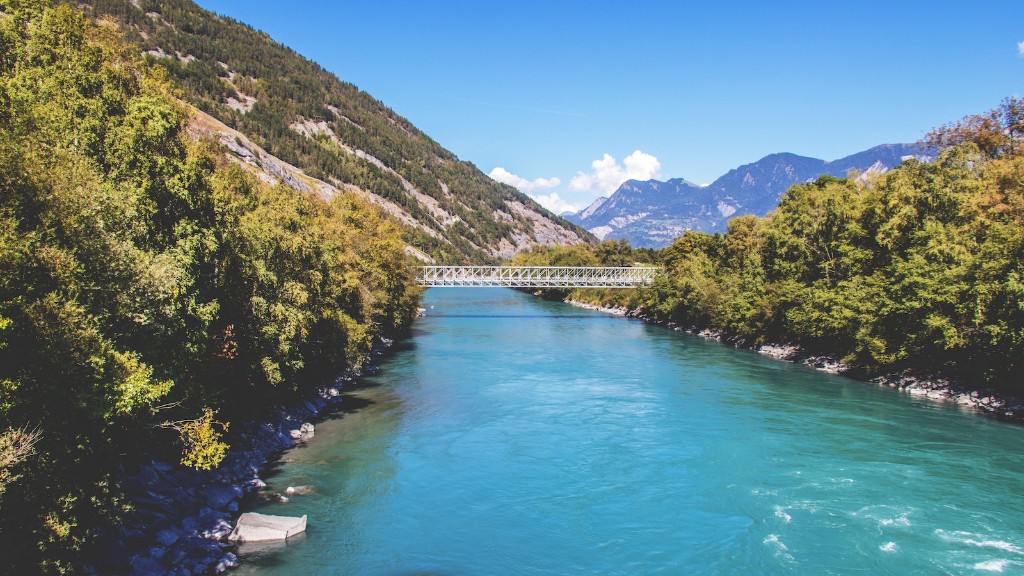Health Impacts of Lakes on the Mississippi River
The health of the Mississippi River is a major concern for environmental advocates and policymakers. It is a major ecological and waterway system in America and its health is determined by the quality and quantity of both its surface and groundwater resources. One possible factor that sometimes affects the health of the Mississippi is the presence of lakes in its vicinity. Therefore, it is important to understand how they impact its well-being.
Lakes are bodies of standing water that have formed over time due to various topographical and geological factors. They contain a wealth of aquatic life and are often used as tourist attractions and as sources of drinking water. Long a source of recreation and sustenance to many people, lakes have recently come under scrutiny as potential pollution sources that could affect the health of the Mississippi River.
It is known that lakes impact the Mississippi’s water quality by contributing runoff containing sediment, nutrients, and pollutants into the river. The presence of nutrients like nitrogen and phosphorous, for example, can alter the chemical makeup of the Mississippi’s waters and disrupt the river’s aquatic ecosystem. This can lead to water-clarity issues and the development of large algal blooms which can block the passage of ships and otherwise cause ecological disruption.
In addition, some scientists believe that the presence of lakes in an area can accelerate the formation of eutrophication in the Mississippi river. This occurs when nitrogen and phosphorus from fertilizers and untreated human waste infiltrate the river, leading to algal blooms of cyanobacteria which can be toxic and can cause serious health issues for humans and animals. These blooms can sometimes spread to the lakes, leading to further disruption of the river’s aquatic ecosystem.
In addition to the impacts on water quality, lakes can also affect the flow of the Mississippi river. While lake water is typically nutrient poor, it can contribute to the overall flow of the river and can become a source of water in times of drought. This can help mitigate the effects of drought and can help regulate the level of the river. However, is it important to note that too much water flowing from the lake can result in flooding. Thus, while lakes may occasionally benefit the river during times of drought, they can also become a source of flooding and may contribute to other problems.
The health of the Mississippi River is a very important issue, especially in light of concerns about climate change and its potentially drastic impacts on river systems. Understanding how lake can potentially impact the river is critical to the health and sustainability of this important waterway. Scientists have yet to fully understand the impacts of lakes on the Mississippi, however, careful management of these resources may help to maintain the health of the river for many generations to come.
Pollution Effects on the Mississippi River
The health of the Mississippi River is also threatened by human-induced pollution, such as agricultural runoff and industrial waste. These pollutants often enter the river from upstream sources, and can have far reaching impacts on the aquatic ecosystem. Agricultural pollutants such as nitrogen and phosphorous, for example, can cause eutrophication, a process by which these nutrients cause excessive algae growth, reducing the oxygen available for other aquatic species.
Industrial pollutants often enter the river via runoff from manufacturing sites and have the potential to contaminate the water with toxic metals, oils and other chemicals. These pollutants can have a number of detrimental impacts, including decreased water clarity, reduced oxygen levels, decreased fish populations and a decrease in the overall biodiversity of the ecosystem. In addition, some industrial pollutants can also bioaccumulate in certain species, leading to harmful health effects on both people and animals.
In addition to pollutant impacts on the river, the health of the Mississippi is also threatened by the destruction of its natural habitats. Construction of dams, dredging, and other human activities have led to the destruction of fish spawning grounds, as well as the destruction of other important habitats needed for the river’s ecosystems to thrive.
Additionally, human activities such as overfishing and the introduction of invasive species to the river can have far reaching impacts. Overfishing can lead to decreased populations of fish and other aquatic species, which can in turn lead to further disruptions of the aquatic food web. The introduction of invasive species, such as zebra mussels or Asian carp, can also have detrimental impacts on the river’s Native species.
The health of the Mississippi River is also affected by changes in climate. As temperatures in the region rise, water levels sometimes drop in the months of June and July. In addition, significant variations in water levels can cause flooding and can sometimes increase turbidity and siltation, leading to negative impacts on river habitats and aquatic species.
Our Effect on the Mississippi
It is now clear that the health of the Mississippi River is impacted by a number of different factors, from pollution to the presence of lakes, to climate change. The human factor is an important one, and it is clear that our actions have a major impact on the health of this important waterway. As citizens, it is our responsibility to understand the impacts that our activities can have on the river, and to ensure that our actions are not detrimental to the health of the Mississippi and its associated ecosystems.
We can help to ensure the health of the Mississippi by reducing the amount of pollutants released into the river. Simple things like not using harsh chemicals in the home and reducing the amount of nutrients runoff from our households can make a big difference. Additionally, we can help to combat climate change by reducing our reliance on fossil fuels and working to create a more sustainable future.
It is also important to remember that the Mississippi is a shared resource, and it is essential that we work together to ensure its health for future generations. Working together with public and private stakeholders, scientists, and policymakers we can make a positive difference in the health of the Mississippi and ensure that this vital river system can sustain itself for many generations to come.
Stewardship and Conservation of the Mississippi
It is clear that the health of the Mississippi is of paramount importance, and scientists and conservationists are working hard to protect and preserve the river and its associated ecosystems. In order to maintain a high-quality aquatic ecosystem, it is important to understand how the river works and the impact that our activities and those of other land users can have on the river.
Conservationists recommend establishing a river-management program in order to protect and maintain the waterway, and this includes monitoring the water quality of the river, as well as implementing best practices for land use and management. This includes minimizing the amount of pollutants that are introduced into the river and ensuring that the river’s habitats are maintained in a healthy condition.
In addition, scientists recommend establishing marine protection zones in order to protect sensitive habitats and species. These zones can help to safeguard important habitats and ensure that the river’s aquatic species are not overfished or destroyed. Additionally, science-based management plans can help to ensure that the population of fish and other aquatic species remain at sustainable levels.
It is also important to recognize the importance of public education and outreach when it comes to the health of the Mississippi River. This includes making sure that the public has access to the latest research and developments in river management and understanding the importance of the Mississippi to our society. Additionally, it is important to ensure that stakeholders, such as local businesses and communities, understand the potential impacts their activities can have on the river and recognize the importance of sustainable management.
The Role of Colonization in the Mississippi River
The Mississippi River has been an important part of human history for centuries, and it has seen a tremendous amount of change since the arrival of Europeans to the region. The river has been used for transportation and commerce, and it has been the subject of a number of different colonization efforts. This colonization has had a tremendous impact on the river and its associated ecosystems, and it is important to understand its role in the river’s health.
In many cases, colonization has brought with it a number of changes that have had a negative impact on the river. The introduction of European settlers to the region, for example, has led to the destruction of natural habitats and the transformation of the region’s landscape. The introduction of agriculture, dams, and other human activities have had far-reaching impacts on the river and its associated ecosystems.
In addition to the impacts of land clearance and human activities, colonists have also introduced a number of pollutants into the river. This includes the introduction of foreign species, the expansion of agricultural runoff, and the introduction of industrial pollutants. Colonists have also been responsible for overfishing and the introduction of non-native species, which can also have a negative impact on the river’s aquatic ecosystem.
It is now essential to recognize the role of colonization in the health of the Mississippi River and to make sure that we continue to work towards reducing its negative impacts. This includes the adoption of sustainable land management practices, the maintenance of an adequate regulatory framework, and the establishment of marine protection zones. Additionally, it is important to recognize the need to restore habitats that have been damaged by colonization and to promote public awareness of the importance of the Mississippi River and its associated ecosystems.





